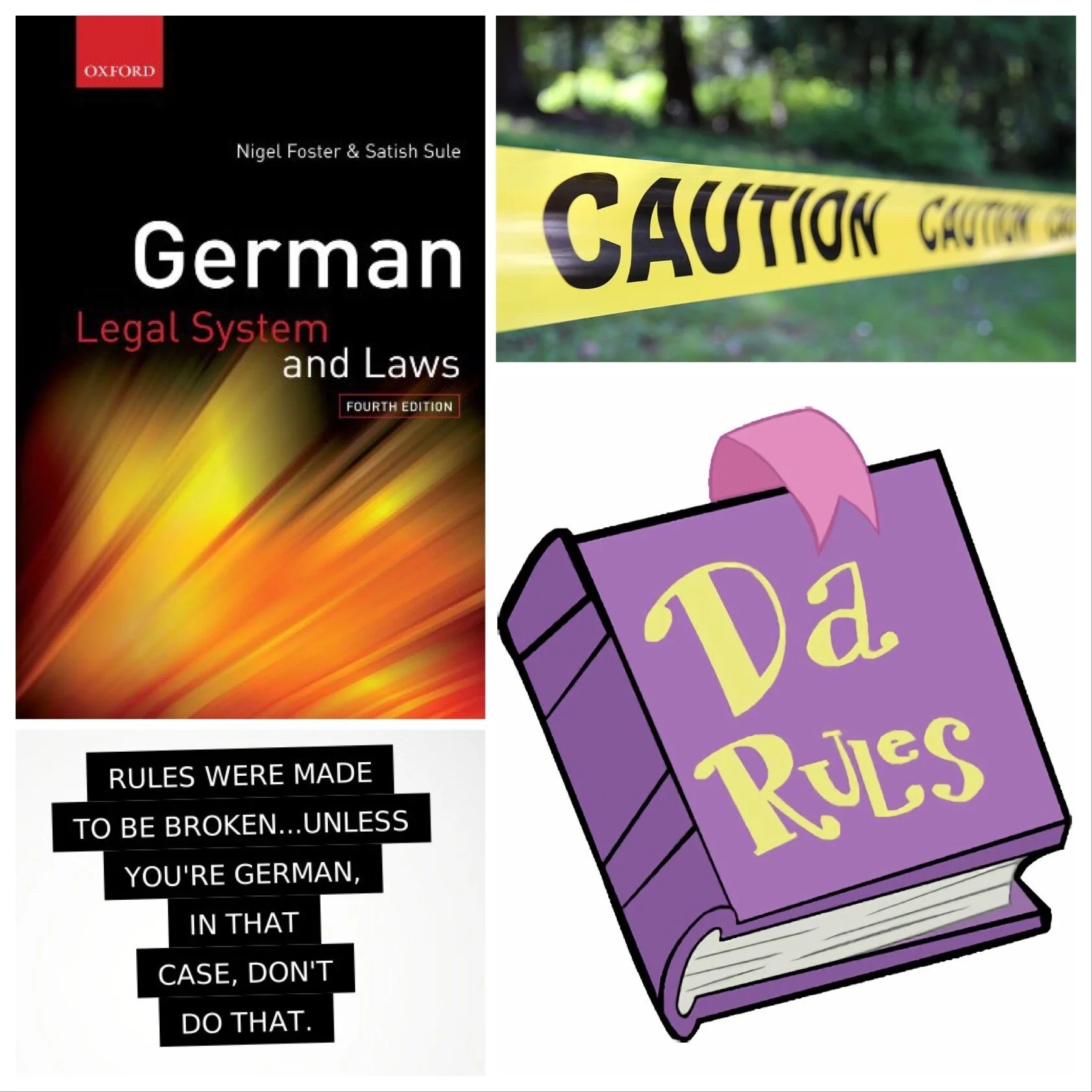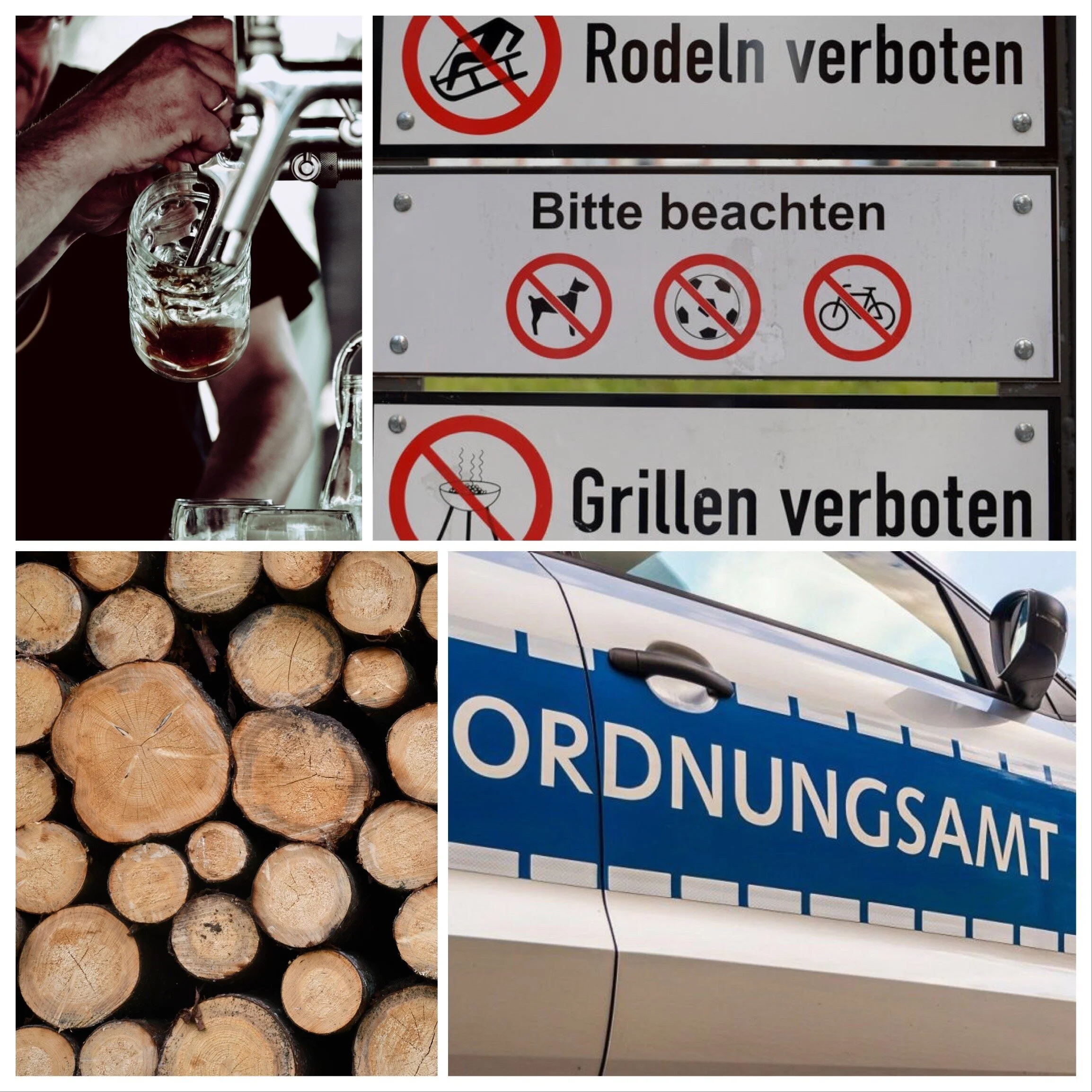Land of the Rule Followers
Stand at a quiet pedestrian crossing in Germany and something miraculous will happen: no matter how few cars on the road, people will stand and wait patiently for the Ampelmännchen to turn green. Coming from Britain, where pedestrian signals are treated as suggestions rather than rules, this was a shock. Crossing the road is only one example of German rule following, along with many, many others; no noise after 10pm, no loud noise on Sundays, tax returns, separating the recycling, punctuality, Hausordnung, Schulordnung, Arbeitsordnung, all are used as examples of the orderly nature of society. Germany has many rules, and many rule followers, all of which is perfectly encapsulated in the saying ‘Ordunung muss sein’ (There must be order).
I’m often asked why Germans follow the rules so assiduously. I’ve heard various explanations, from Martin Luther teaching respect for authority, to the psychological scars accrued during the chaos of the Thirty Years War during the 17th century. Sometimes Prussian values are mentioned, or the division of Germany during the Cold War. I’ve even heard the Wall Street Crash of 1929 and the hyperinflation of the Weimar Republic used as a reason. All may be contributing factors, but there’s no single reason why order is so prized. Although rules and organisation may be the goal, over the years I’ve seen and heard many examples that question the image of the rule following German automaton. Nowadays, when I’m asked why Germans follow the rules, I’m more likely to reply “Do they?”
Question the accepted truth that “Germans follow the rules” and you’ll often meet blank stares or howls of derision. It’s gospel truth, Germans have internalised the rules and they rarely need supervision to ensure compliance. People just do it. However, if that were the case, why does Germany need the Ordnungsamt, an office of local government responsible for maintaining social order? Surely if people were so focused on following the rules, there wouldn’t need to be a government department in place to tell the neighbours to turn down their stereo on a Sunday morning.
In my experience Germans break the rules all the time. I live next to a glass recycling area, and I can tell you there are plenty of people who ignore the rules about recycling glass on Sundays. Speaking to some employees at the local recycling centre over the summer, I was told that most of their job involves catching people who are too lazy to sort their waste. Germans will be late for appointments, despite the stereotype, and anyone who thinks the Autobahn is some kind of utopia of innate rule following clearly hasn’t driven on the Autobahn. The idea that Martin Luther sits on the shoulders of Germans like some sour faced Jiminy Cricket is a fabrication.
All these examples of Germans breaking the rules have something in common; if Germans can get away with breaking the rules, they happily will. The person recycling their bottles on a Sunday morning is gambling that no one will actually stop them, same for the recycling centre. Germans will often be late for meetings if they’re in a position of power, correctly assuming that no junior employee will have the guts to complain. On the Autobahn, might is right. If you have a faster car, then flashing your lights, driving too close and generally acting like a lunatic at 200 kph is the norm. Since traffic police are more concerned with stopping trucks and lorries, and speed camera usage sporadic, there are few ways dangerous drivers will ever be punished, unless they actually cause an accident.
This is perhaps why the Society of Auto-Correction is so prevalent in Germany. Public scolding is common enough, leaving a person red faced and lost for words, as they’re upbraided by a complete stranger for a minor infraction of the rules. For so long I just assumed these people were annoying busybodies on a power trip. However, they may well be the last line of defence against the chaotic hordes, an army of freelance Ordnungsamtsmitarbeiter (Employees of the office of public order) reaching the parts of the country that government officials can’t, or won’t. Possibly, but I still can’t shake the feeling that those who feel compelled to shout at others do it because of the titillating thrill, rather than out of a sense of civic duty.
Over the last two years we’ve had the clearest example of the flawed concept of German rule following. The pandemic has shown on numerous occasions that there are thousands of Germans out there more than willing to flout the law. While mask wearing is ubiquitous in some areas, in others people have ignored provisions as it suited them. Every other week there was a story about someone being arrested with thousands of forged vaccination certificates, and during lockdown, there were daily tales of Corona parties or people ignoring the pandemic regulations to meet friends. Although I would agree that for some periods during the pandemic the rules have been a little confusing at times, at no point were they so incomprehensible that people didn’t understand the basic concepts.
German rule following is more often than not used to show how liberated and dynamic the US or Britain is by comparison. It’s also an excuse used to explain away the high levels of German productivity, Germans follow the rules and are slaves to the process, whereas the English speaking world is full of risk takers and iconoclasts, moving fast and breaking things. Will Germans wait at a pedestrian crossing, even when there are no cars in sight? Yes. Does Germany have a mind boggling amount of laws? They certainly do. Yet, that doesn’t equate to a pathological desire to blindly obey every edict. Germans are more than capable of ignoring the rules, it’s just most of the time they do it when no one’s looking.
Image Credit
Photo by Moritz Kindler on Unsplash
Photo by Tingey Injury Law Firm on Unsplash
Photo by Brett Jordan on Unsplash








